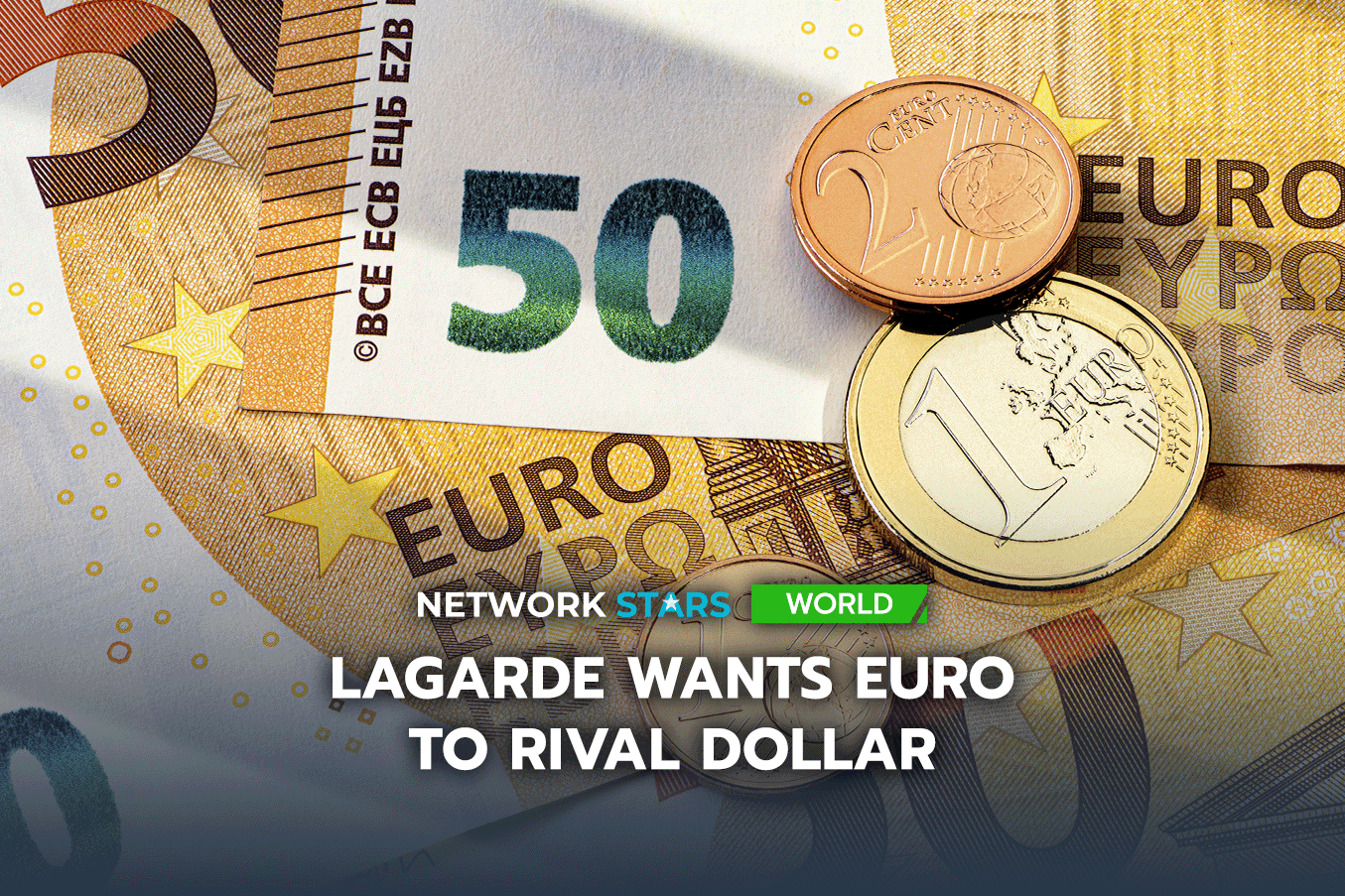The president of the European Central Bank (ECB), Christine Lagarde, stressed on Tuesday the need to develop the international dimension of the euro so that it can evolve from being an intermediate safe-haven currency into “a true global currency” and thus reap all the advantages that the dollar has for the United States.
Lagarde, who gave a speech at the Paris headquarters of Business France, the public agency for the international promotion of French companies, noted that in the current situation, where the dollar is the world’s major currency, “we suffer the consequences of decisions made in Washington,” especially considering that Europe is the largest market with the highest level of openness to the outside world.
In his view, Europeans cannot remain mere spectators, and in this case that means that the euro must evolve from an “intermediary currency to a true global currency capable of turning our weaknesses into lasting strengths.”
One of the main problems he sees in achieving this goal is that “our capital market remains too limited” due to its fragmentation and, in many cases, investments flow in the direction of the United States. This means, he said, that stock markets are twice as large in the United States as in Europe, and returns there are higher.
The ECB president indicated that strengthening the euro also involves strengthening the internal market by removing the barriers and obstacles that remain.
Lagarde estimated that a 2% increase in trade within the European Union (EU) would offset the losses resulting from the increase in tariffs on European products in the United States since Donald Trump’s arrival at the White House.
In his view, some of the main obstacles to progress in the single market are the fragmentation of regulations and taxation, as well as bankruptcy procedures and the failure to complete the single market for capital.
Otro punto importante para conseguir que el euro sea más utilizado fuera de la UE es aprovechar las relaciones comerciales ya existentes (los Veintisiete son el principal socio comercial de 72 países del mundo que representan el 40 % del producto interior bruto (PIB) y establecer nuevos acuerdos comerciales, y se refirió en particular al cerrado con Mercosur en diciembre pasado, que es especialmente controvertido en Francia, donde hay una enorme resistencia a su ratificación.
He said that with existing agreements and those currently under negotiation, the EU could increase its exports by 40% by 2032.
Lagarde also referred to encouraging the use of the euro in international transactions with new initiatives to facilitate payment in this currency, for example with the digital euro that the ECB is working on.
He insisted that Europe has significant advantages over other major economic blocs, including the United States, due to the confidence inspired by its democratic institutions and the independence of the ECB. This was an indirect reference to Donald Trump’s attacks on the independence of the US Federal Reserve since he became president.
On a slightly more political note, Lagarde said that the EU must explore new ways of making more dynamic decisions, including majority voting rather than unanimity, or the formation of so-called “coalitions of the willing” with countries that want to deepen their cooperation in certain areas without waiting for the approval of all 27 member states.
Source: Investing.com

